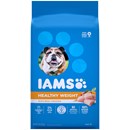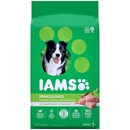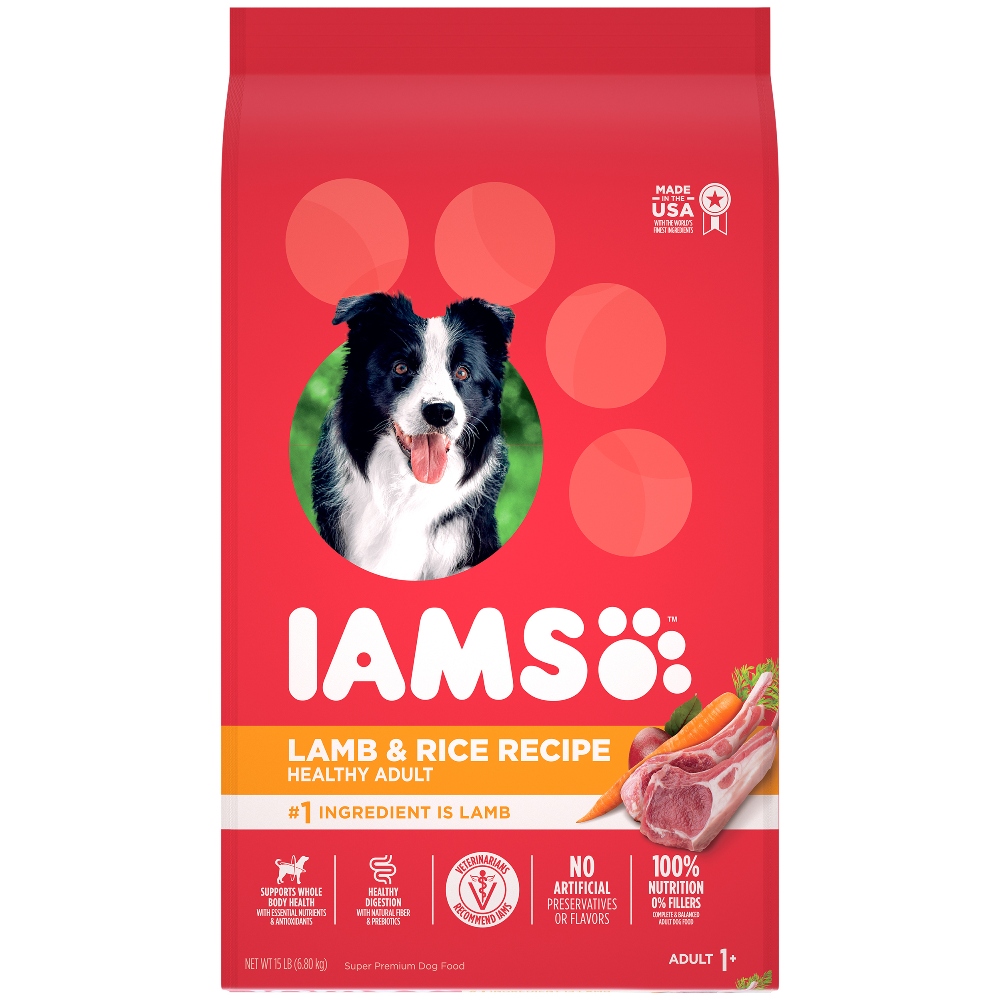What Kind of Food Does Your Dog Need?

Nutritional Needs
Good nutrition is as important to your dog's health as it is to your own. But his nutritional needs are quite different from yours! In general, while a human diet should be high-fiber and low in fat, a dog needs more fat (for energy and a healthy skin and coat) and less fiber (for good intestinal health).
Even if you prefer a vegetarian diet, designing a high-quality dog diet without animal protein is difficult. The IAMS Company research supports that dogs will not thrive on meatless meals. Dogs are best fed as carnivores because they have simple stomachs and short intestines that are ideal for digesting animal protein and animal fat. Dogs also need carbohydrates for energy.
Life Stage and Lifestyle
With thousands of different pet foods available, how do you pick the one that's right for your dog?
Start by identifying the dog's life stage and lifestyle. Puppies, nursing mothers and mature pets are examples of life stages. And each one has different nutritional requirements. All dog foods must state which life stage they are recommended for.
Nutritional needs also vary depending on lifestyle. A dog whose primary activity is guarding the couch doesn't need as much energy as one who guards a herd of sheep. Another factor to consider is breed size: small, medium or large.
Finally, consider any special medical condition your dog may have, like food allergies, that may require a special diet recommended by your veterinarian.
Dry or Wet?
Once you've determined your dog's life stage and lifestyle needs, you need to decide whether to feed dry or canned food. Most dogs do well eating only dry food. Dry foods promote oral hygiene for healthy teeth and gums through abrasive action. Some dogs, especially finicky eaters, enjoy wet food with its smooth, wet texture.
It's important to remember that, while dry food can be left in a bowl all day, wet food should be thrown away after 30 minutes if not consumed. So, dry food is the best choice for busy people who are not normally home during the day.
Once you know your pet's nutritional needs and your pet's preference, you are ready to go shopping.
Comparing Labels
Ingredients are listed in descending order according to weight. Because dogs thrive on animal-based diets, it's best to pick a food in which the first ingredient is an animal-based protein source, such as chicken, lamb, fish or egg. These ingredients contain a full complement of essential amino acids unlike a vegetable-based protein sources, such as soybean meal or corn gluten meal.
Scientific studies show that using a combination of carbohydrates in the diet, such as corn meal or barley and grain sorghum, offers optimal carbohydrate digestibility and helps maintain energy levels.
Scientific studies also show that beet pulp'the material remaining after sugar is extracted from sugar beets'is an excellent fiber source and promotes a healthy digestive tract.
For a glossy coat and healthy skin, your pet needs fat in the diet. Good fat sources include chicken fat and fish oil.


